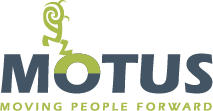Preparation is an essential part of feeling confident when heading into an interview. Typically you might think about what potential questions you will be asked, and what answers would best capture you as a person and as an employee, but have you ever spent time preparing for what not to say? Often times we are so concentrated on knocking questions out of the park that we do not stop to analyze what information that questions is eliciting, and how that could ultimately impact us negatively in the long run. The good news is that by learning your rights as a candidate and learning how to recognize inappropriate questions, you can leave an interview feeling like you’ve been evaluated on what matters most: your knowledge, skills, and abilities!
While you may think that it would be easy to detect discriminatory questions, it often is not that overt. A question such as “Can you explain the gap in your work history?” may seem appropriate at first, but can often prompt you to respond with answers that reference age, ethnicity, disabilities, or marital/family status. Rather than inform the interviewer that you took a year off when your first child was born, you can redirect the question to reference what you did to hone your skills and keep up to date with technology while you were not actively working. You will need to find your comfort zone for knowing how to gracefully avoid these questions without causing undue awkwardness. The interviewers may not know the questions that they are asking are inappropriate or off-putting, so answer in a way that remains professional while letting them know that you are not comfortable providing that kind of information. For example, feel free to ask the interviewer why the question is relevant to the position.
Knowing how to navigate discriminatory questions is only one aspect of protecting your rights; you should also get well versed in your states employment laws. A law passed in Oregon in October 2017 ruled that employers are prohibited from asking candidates about current or past compensation, however that doesn’t stop us from offering up that information when asked what our pay range would be. These laws are meant to protect you, the candidate, as data revealed that such questions perpetuated the wage gap and had adverse impact on protected classes.To prepare yourself concerning salary questions, do market research in your area; learn what a person in your position with your experience and knowledge make on average and then use that as a framework rather than disclosing past compensation. Another example is the “Ban the Box” law, passed in Oregon in January 2016, requires employers to wait until a job offer has been made before inquiring about criminal history. Do not disclose what you are not required to by law. Knowing your state laws during an interview will equip you to protect your personal rights.The desire to be transparent with a potential employer is understandable, but laws such as these are in place to protect you so that you can keep the conversation focused once again on your qualifying factors for the position.
These are helpful tools to keep the conversation on track when interviewing. Most employers and hiring managers do not intentionally unearth information that may end up impacting their implicit bias, but whether intentional or not they may learn something that influences their decision. As a participant in the interview process, you can equip yourself to steer the conversation in an appropriate way. This ability to conduct yourself in such a way during an interview will only work to show professionalism, attention to detail, and an awareness of the current business culture and law.







